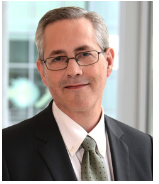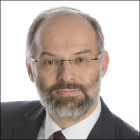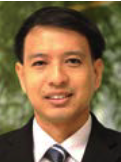As Keynote Speakers our invitation already accepted:
The conjunction of digital “platformization” of innovation processes and of data centric manufacturing opens perspectives of profound transformations in traditional businesses as well as an acceleration in the emergence of disruptive value creation models. In this journey, engineers’ roles change and rely upon new skills, posing major challenges to engineering education systems and to continuing education schemes. The central role of the workforce of the Future in the ongoing industry renaissance has accelerated over the past years the emergence of Learning Centers. Always inspired, often funded and sometimes operated by industry, such centers provide new learning opportunities in various fields, most frequently in domains that relate to the transformations of manufacturing industry also designated as “fourth industrial revolution”. The presentation identifies common characteristics of this movement and the digital usages shaping the activities of Learning Centers in various countries.
 An Industrial Engineer, former Science Attaché in Vienna, Xavier Fouger joined Dassault Systemes in 1990. He developed new innovation processes for various automotive manufacturers in Germany and Korea. He created the corporate organization in charge of global academia. He designed cutting edge learning initiatives for secondary and vocational education in the USA, Malaysia, Canada and France where he introduced a STEM program for 11,500 middle/high school students yearly. He initiated PLM (Product Lifecycle Management) competency centres in India, China, Brazil, Mexico, Colombia, South Africa, Kenya, Ivory Coast, Vietnam and Argentina.
An Industrial Engineer, former Science Attaché in Vienna, Xavier Fouger joined Dassault Systemes in 1990. He developed new innovation processes for various automotive manufacturers in Germany and Korea. He created the corporate organization in charge of global academia. He designed cutting edge learning initiatives for secondary and vocational education in the USA, Malaysia, Canada and France where he introduced a STEM program for 11,500 middle/high school students yearly. He initiated PLM (Product Lifecycle Management) competency centres in India, China, Brazil, Mexico, Colombia, South Africa, Kenya, Ivory Coast, Vietnam and Argentina.
He created Dassault Systemes’ Learning Lab that conducts collaborative educational research with various universities, funded by US and European agencies on the use of digital technologies in education and the development of lifelong learning of emerging engineering practices. Research areas of the Learning Lab are on virtual labs, collaborative engineering, 3D in MOOCs, Problem Based Learning and textbook virtualization. Current research field in teaching emerging engineering practices all relate to learning new practices of the Industry Renaissance: social innovation, precision agriculture, the Internet of Things, the Virtual Twin, Additive Manufacturing, Smart farm/factory/building and Systems Engineering.
A founding member of IFEES (International Federation of Engineering Education Societies) and GEDC (Global Engineering Deans Council), steering committee member of SEFI (European Society for Engineering Education), he provides lectures and seminars on innovation management in various engineering and business schools. Xavier Fouger is an expert for the French engineering degree accreditation agency (CTI), a member of the consultative board of the UNESCO Aalborg Center for Problem Based Learning and a board member of several Engineering schools.
His current focus is on developing industry-inspired learning centres, establishing educational government programs and nurturing collaboration with engineering education societies.
Awarded the 2016 Peter the First medal of the Association for Engineering Education of Russia for significant contribution to the development of engineering and engineering education, he is a fellow of the American Society for Engineering Education (ASEE) since 2018.
For any enterprise, a key success factor is the quality of the product it delivers. In the education sector, this “product” is the delivery process itself, while in medicine, the customer – i.e. the student – actually takes part in the process as a “co-producer”.
This interactive aspect of the service delivery has a significant consequence for us as technology providers in medicine (actual and important now in Engineering Education), namely that any time student who fail to engage with the educational process, they suffer a kind of “loss” in this process.
More relevant to this report is the fact that people trying to predict the future of the education often disagree on the trends and drivers affecting it the most, and hence they don't draw the same conclusions about the direction of future evolutions.
Niels Bohr was right when he said, “Prediction is difficult, especially about the future.”
Engineering Education must engage the students in both the cognitive domain - developing ability to perform the techniques - and in the affective domain - transforming the student's belief to recognize the positive value of the engineering education methods. We need to think how to fill the current gap in addressing the affective domain in Music Therapy and how to extend it to Engineering Education.
 Prof.Dr.Phys. Doru Ursutiu (udoru@unitbv.ro) is the Manager of Center for Valorization and Transfer of Competence CVTC from „Transylvania” University of Brasov (https://www.unitbv.ro/index.php?option=com_content&view=article&id=2142) and coordinator of CVTC Creativity Laboratory. He completed his studies of Physics at the „Babes-Bolyai” University from Cluj-Napoca – Romania and is specialized in Open and Distance Learning (LOLA course - Heriot Watt University UK) and Noise in Electronic Systems.
Prof.Dr.Phys. Doru Ursutiu (udoru@unitbv.ro) is the Manager of Center for Valorization and Transfer of Competence CVTC from „Transylvania” University of Brasov (https://www.unitbv.ro/index.php?option=com_content&view=article&id=2142) and coordinator of CVTC Creativity Laboratory. He completed his studies of Physics at the „Babes-Bolyai” University from Cluj-Napoca – Romania and is specialized in Open and Distance Learning (LOLA course - Heriot Watt University UK) and Noise in Electronic Systems.
The key qualifications of Prof. Ursutiu are Physics, Electronics (with a doctorate in Noise and Fluctuations in Electronic Systems and Devices), Graphical Programming, Remote and Virtual Instrumentation.
He is Associate member of Academy of Romanian Scientists AOSR, member of Executive Committee - Central European Chapter of Association for the Advancement of Computing in Education (AACE) and Past_President of International Association of Online Engineering IAOE. In the same time he is member of Scientific Committee and reviewer for many international conferences and publications (REV, ICL, IMCL, EURODL, IJIM, IJ-SoTL, etc.)
Academic entrepreneurship has attracted major attention and is considered to be an important element on the way to a knowledge-oriented society. An emerging perspective of academic entrepreneurship includes wider social and economic benefit to the university ecosystem overcoming the traditional goal of economic revenue from research commercialization. Today the creation of students- and alumni-start-ups, entrepreneurially equipped students, and job creation in the local region or state have become the priority.
Although entrepreneurship is defined as “the process of designing, launching and running a new business” with its distinct characteristic of new value creation, it is more than starting up a new business. Applying a holistic perspective, entrepreneurial activity arises of the interplay of institutions (e.g. education or business development), stakeholders and entrepreneurs themselves.
The relevance of entrepreneurship education to foster entrepreneurship culture and activity is widely recognized. Teaching entrepreneurship has a number of positive effects and benefits. These benefits include the inculcation of thinking as well as collaborative and communication skills that are highly valued also by employers. Entrepreneurial education provides key skills to identify a winning business.
But several studies proposed that entrepreneurship education cannot be taught with traditional methods. Traditional education teaches students to obey, duplicate, and be employed while entrepreneurship tells students to make their own judgements and create their own jobs and these cannot be taught using traditional teaching.
 After studying mechanical engineering and management with a focus on production engineering at Graz University of Technology between 1987 and 1994, he completed his postgraduate studies in environmental protection engineering at Munich University of Technology from 1994 to 1995. The doctorate in technical sciences at Graz University of Technology was completed in 1999 with a doctorate. During this time, Mr. Vorbach was also a research assistant at the Institute of Innovation and Environmental Management at the Karl Franzens University in Graz. In 2005 Stefan Vorbach habilitated at the SOWI faculty of the Karl-Franzens-University Graz in general business administration. In 2007, Stefan Vorbach moved to the Institute for Systems Sciences, Innovation and Sustainability Research at the Karl Franzens University Graz as an associate professor. In 2010, Stefan Vorbach accepted a professorship at the Institute of General Management and Organisation at the Graz University of Technology. From 2011 to 2019, Mr. Vorbach also held the position of a Dean of Studies for Mechanical Engineering and Management and for Production Science and Management at the Faculty of Mechanical Engineering and Economics at Graz University of Technology. In addition, he was head of the Coordination Team of the Doctoral School Techno-Economy until 2019 and a member of the Curricula Commission for Mechanical Engineering Economics and Production Science and Management at Graz University of Technology.
After studying mechanical engineering and management with a focus on production engineering at Graz University of Technology between 1987 and 1994, he completed his postgraduate studies in environmental protection engineering at Munich University of Technology from 1994 to 1995. The doctorate in technical sciences at Graz University of Technology was completed in 1999 with a doctorate. During this time, Mr. Vorbach was also a research assistant at the Institute of Innovation and Environmental Management at the Karl Franzens University in Graz. In 2005 Stefan Vorbach habilitated at the SOWI faculty of the Karl-Franzens-University Graz in general business administration. In 2007, Stefan Vorbach moved to the Institute for Systems Sciences, Innovation and Sustainability Research at the Karl Franzens University Graz as an associate professor. In 2010, Stefan Vorbach accepted a professorship at the Institute of General Management and Organisation at the Graz University of Technology. From 2011 to 2019, Mr. Vorbach also held the position of a Dean of Studies for Mechanical Engineering and Management and for Production Science and Management at the Faculty of Mechanical Engineering and Economics at Graz University of Technology. In addition, he was head of the Coordination Team of the Doctoral School Techno-Economy until 2019 and a member of the Curricula Commission for Mechanical Engineering Economics and Production Science and Management at Graz University of Technology.
His interests include strategic technology and innovation management, entrepreneurship and business model management.
Approx. 120 publications on topics of strategic innovation and technology management, entrepreneurship, business model management and sustainability management as well as numerous lectures on the above-mentioned topics
He is involved in approx. 40 projects, financed by national and international sponsors and industry and has done the supervision of approx. 400 master theses and approx. 25 dissertations.
 Aditad Vasinonta has been deeply interested in all sort of mechanical system; clockwork, engine, robot, ever since he could remember. He, therefore, made his academic choice into engineering. After completing a bachelor’s degree in mechanical engineering, he joined the Department of Industrial Promotion, Ministry of Industry, Thailand. At early stage of his career, he worked as an engineer to promote metal-working and machinery industries. After working for two years, he was offered a scholarship and he chose to further his engineering study at the Carnegie Mellon University, United States. Rejoining Ministry of Industry after his Ph.D. graduation in 2002 was very exciting. Throughout 16 years at Industry Ministry, he has been working on several new initiatives such as industrial cluster development and business service development. Currently, he is a Deputy Director-General at the Office of Industrial Economics, Ministry of Industry. His responsibility includes proposing industrial policies, negotiating with international industrial organizations and agencies as well as providing industrial information and guidance of industrial economics.
Aditad Vasinonta has been deeply interested in all sort of mechanical system; clockwork, engine, robot, ever since he could remember. He, therefore, made his academic choice into engineering. After completing a bachelor’s degree in mechanical engineering, he joined the Department of Industrial Promotion, Ministry of Industry, Thailand. At early stage of his career, he worked as an engineer to promote metal-working and machinery industries. After working for two years, he was offered a scholarship and he chose to further his engineering study at the Carnegie Mellon University, United States. Rejoining Ministry of Industry after his Ph.D. graduation in 2002 was very exciting. Throughout 16 years at Industry Ministry, he has been working on several new initiatives such as industrial cluster development and business service development. Currently, he is a Deputy Director-General at the Office of Industrial Economics, Ministry of Industry. His responsibility includes proposing industrial policies, negotiating with international industrial organizations and agencies as well as providing industrial information and guidance of industrial economics.
Aside from his official work, Aditad had served as the Secretary General of the Asian Packaging Federation, an international organization comprising of 14 Asian member countries, for 4 years during 2007 – 2010. In addition, he has taught several courses in mechanical engineering at Thammasat University and King Mongkut's University of Technology North Bangkok, Thailand.
| 03 Apr 2019 | Submission of - structured abstracts (full paper, short paper, poster) for the main conference - Special Session Proposals |
| 26 Apr 2019 | - Notification of acceptance for abstracts for the main conference - Special sessions notification and announcement |
| 03 Jun 2019 | Submission of complete papers for all submission types |
| 28 Jun 2019 | Notification of Acceptance |
| 22 Jul 2019 | Author Registration Deadline |
| 22 Jul 2019 | Camera-ready due |
| 25 Sep 2019 | Conference Opening |